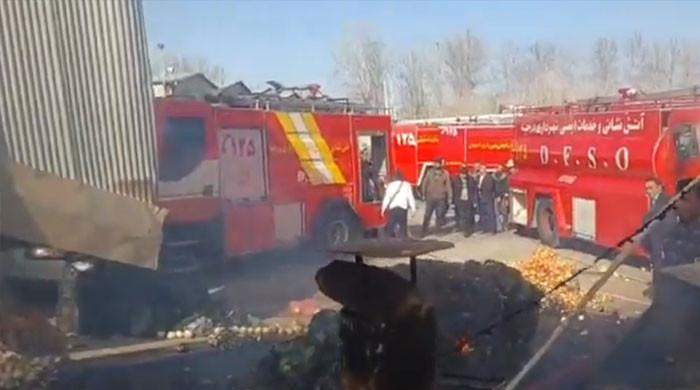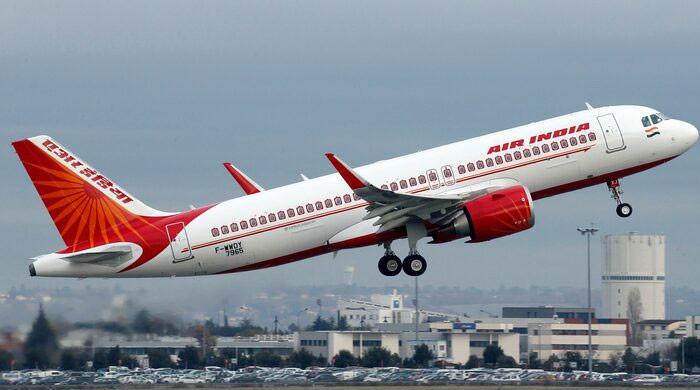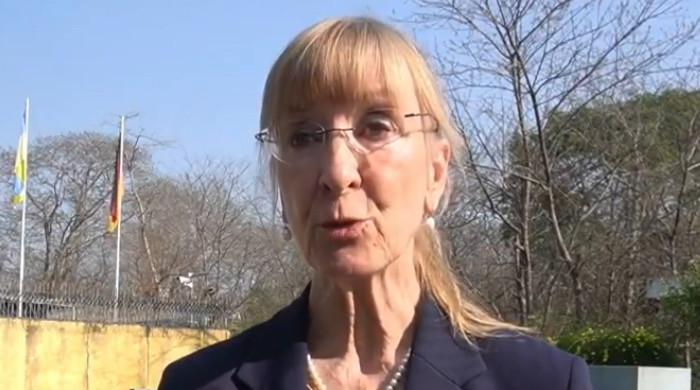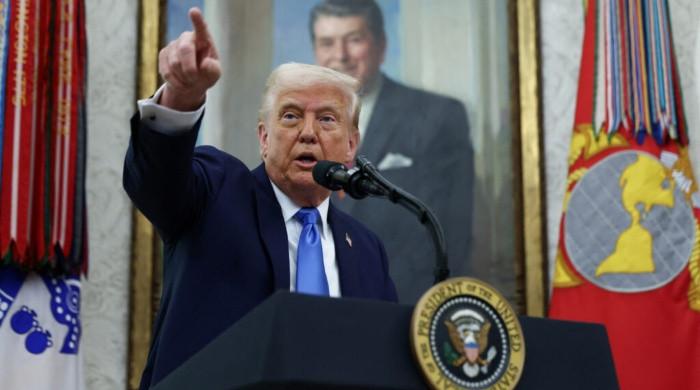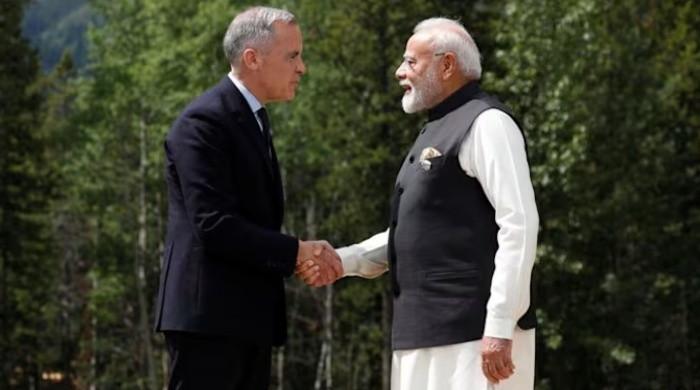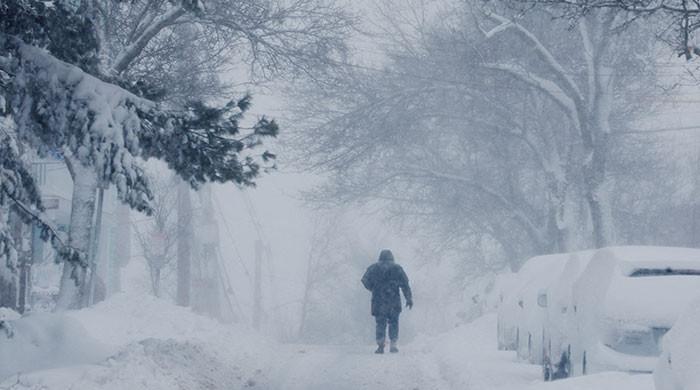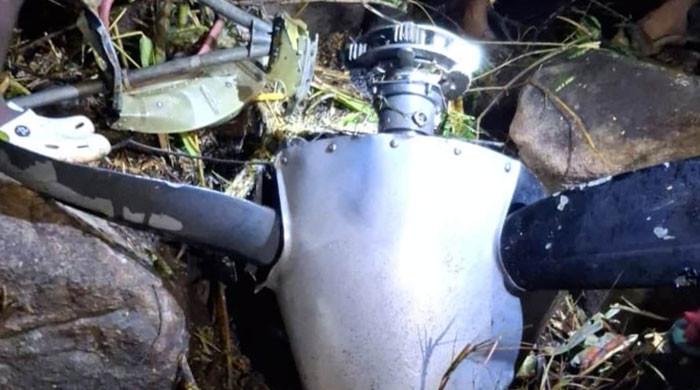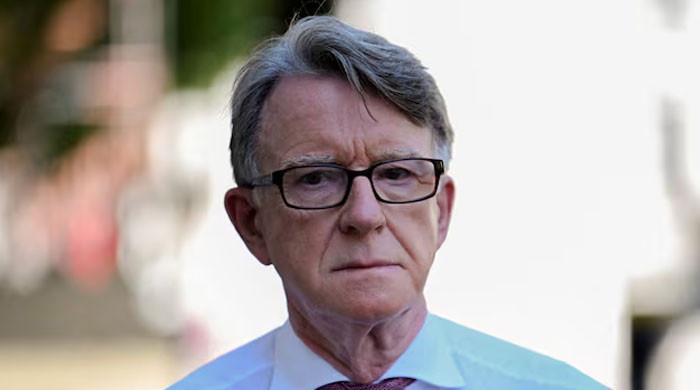Morocco agrees to recognise Israel under US-brokered deal
Trump sealed the Israel-Morocco accord in a phone call with Morocco's King Mohammed VI on Thursday
December 11, 2020
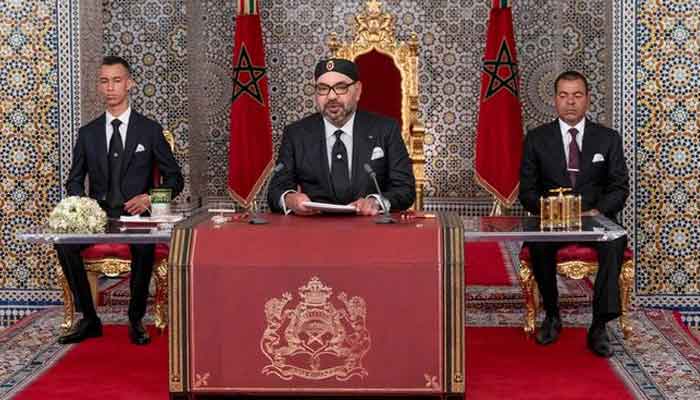
- Trump hails the deal as "historic breakthrough"
- UAE and Egypt welcome Morocco-Israel deal
- US recognises Morocco's sovereignty over Western Sahara
WASHINGTON: Morocco on Thursday agreed to normalise ties with Israel under a US-brokered deal, becoming the fourth Arab nation to set aside hostilities with the Jewish state in the past four months.
It joins the United Arab Emirates, Bahrain and Sudan in beginning to forge deals with Israel, driven in part by US-led efforts to present a united front against Iran and roll back Tehran's regional influence.
In a departure from longstanding US policy, President Donald Trump agreed as part of the deal to recognise Morocco's sovereignty over the Western Sahara, a desert region where a decades-old territorial dispute has pitted Morocco against the Algeria-backed Polisario Front, a breakaway movement that seeks to establish an independent state.
President-elect Joe Biden, due to succeed Trump on Jan. 20, will face a decision whether to accept the US deal on the Western Sahara, which no other Western nation has done. A Biden spokesman declined to comment.
While Biden is expected to move US foreign policy away from Trump's "America First" posture, the Democrat has indicated he will continue the pursuit of what Trump calls "the Abraham Accords" between Israel and Arab and Muslim nations.
Read more: Creation of Palestinian state must before normalising ties with Israel, says Saudi Arabia
Trump sealed the Israel-Morocco accord in a phone call with Morocco's King Mohammed VI on Thursday, the White House said.
"Another HISTORIC breakthrough today! Our two GREAT friends Israel and the Kingdom of Morocco have agreed to full diplomatic relations – a massive breakthrough for peace in the Middle East!" Trump wrote on Twitter.
Mohammed told Trump that Morocco intends to facilitate direct flights for Israeli tourists to and from Morocco, according to a statement from Morocco's royal court.
"This will be a very warm peace. Peace has never - the light of peace on this Hanukkah day has never - shone brighter than today in the Middle East," Israeli Prime Minister Benjamin Netanyahu said in a statement, referring to a Jewish eight-day holiday starting on Thursday night.
Palestinians have been critical of the normalisation deals, saying Arab countries have set back the cause of peace by abandoning a longstanding demand that Israel give up land for a Palestinian state before it can receive recognition.
Egypt and UAE issued statements welcoming Morocco's decision. Egypt and Israel signed a peace treaty in 1979.
"This step, a sovereign move, contributes to strengthening our common quest for stability, prosperity, and just and lasting peace in the region," Abu Dhabi's crown prince, Sheikh Mohammed bin Zayed al-Nahyan, wrote on Twitter.
Read more: Pakistan rejects 'baseless speculation' over recognising Israel
But Senator Jim Inhofe, the Republican chairman of the US Senate's Armed Services Committee, denounced Trump's "shocking and deeply disappointing" decision to recognise Morocco's sovereignty over Western Sahara. Inhofe said people living in the area should vote in a referendum to decide their future.
"The president has been poorly advised by his team. He could have made this deal without trading the rights of a voiceless people," Inhofe said in a statement.
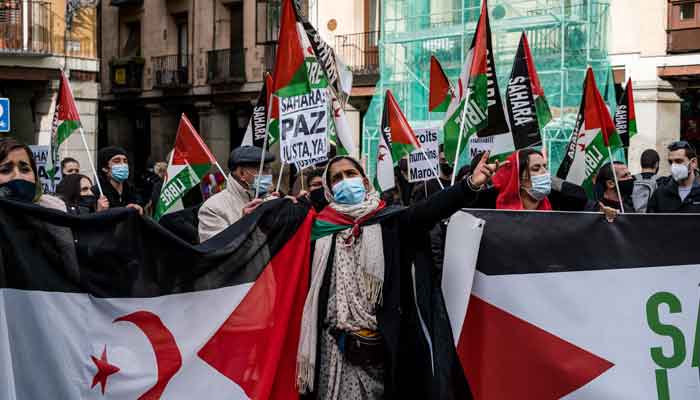
A senior US official said Trump knew about Inhofe's opposition to recognising Morocco's sovereignty over Western Sahara. But Inhofe's argument lost ground with the president when the senator refused to hold up the annual defense spending bill when Trump demanded it be used to repeal a law granting liability protection to tech companies, the official said.
The Morocco deal could be among the last that Trump's team, led by White House senior adviser Jared Kushner and US envoy Avi Berkowitz, will negotiate before giving way to Biden's incoming administration.
Kushner told reporters on a conference call it was inevitable that Saudi Arabia would eventually strike a similar deal with Israel. A US official said the Saudis were not likely to act until after Biden takes office, and even then there would be strong internal opposition that could block such a move in the near term.
Full diplomatic relations
Under the agreement, Morocco will establish full diplomatic relations and resume official contacts with Israel.
Read more: FO dismisses reports of American pressure on Pakistan to recognise Israel
"They are going to reopen their liaison offices in Rabat and Tel Aviv immediately with the intention to open embassies. And they are going to promote economic cooperation between Israeli and Moroccan companies," Kushner told Reuters.
Trump's agreement to change US policy on the Western Sahara was the linchpin for getting Morocco's agreement and a major shift away from a mostly neutral stance.
In Rabat, Morocco's royal court said Washington will open a consulate in Western Sahara as part of Morocco's deal with Israel.
A White House proclamation said the United States believes that an independent Sahrawi state is "not a realistic option for resolving the conflict and that genuine autonomy under Moroccan sovereignty is the only feasible solution."
"We urge the parties to engage in discussions without delay, using Morocco's autonomy plan as the only framework to negotiate a mutually acceptable solution," it said.
Washington had supported a 1991 ceasefire between Morocco and the Western Sahara's Polisario Front independence movement that called for a referendum to resolve the issue. Last month, after a border incident, the Polisario pulled out of that deal and announced a return to armed struggle.
A representative of the Polisario Front said it "regrets highly" the US change in policy, which it called "strange but not surprising."
"This will not change an inch of the reality of the conflict and the right of the people of Western Sahara to self determination," the Polisario's Europe representative Oubi Bchraya said.




